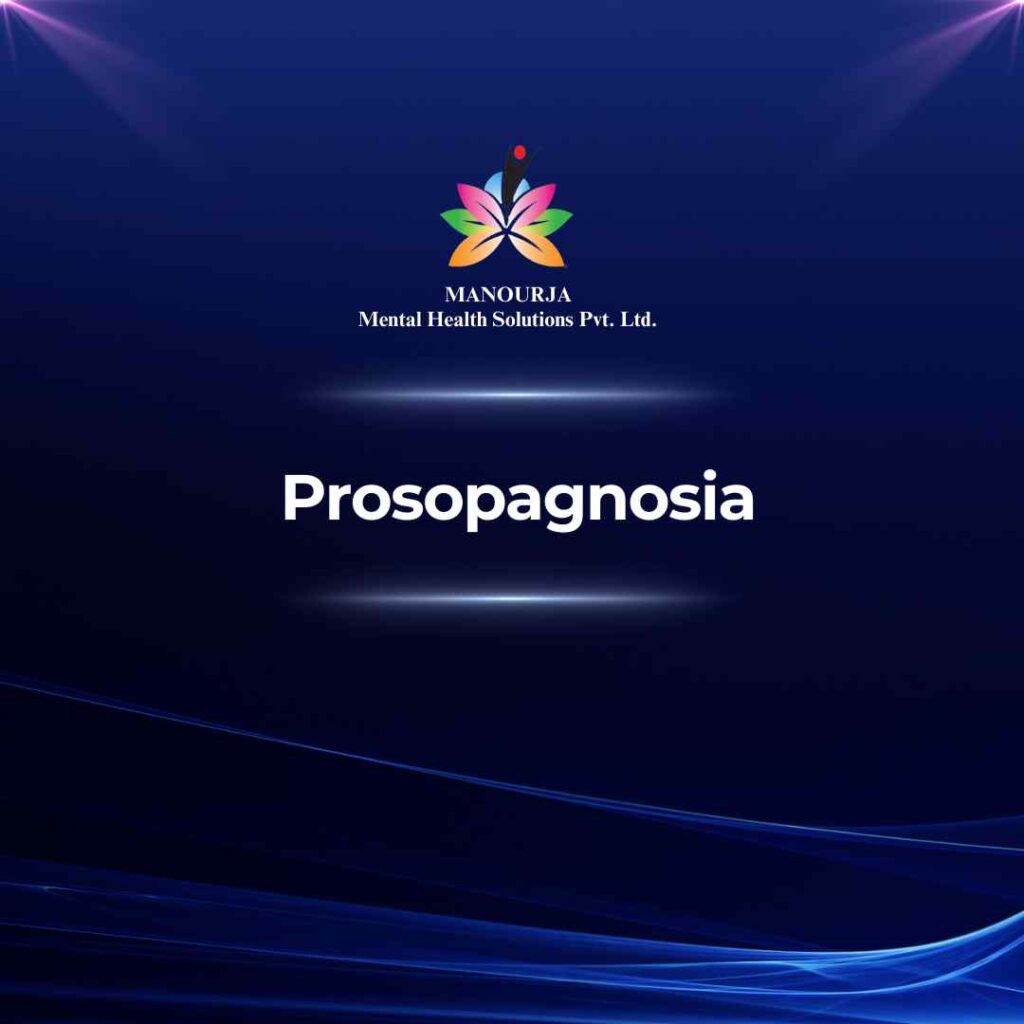Prosopagnosia

“Prosopagnosia” is a neurological condition characterized by the inability to recognize faces, including familiar faces of family members, friends, or oneself. People with prosopagnosia may have difficulty distinguishing between different faces or identifying individuals solely by their facial features, despite having normal vision and intellect. This condition can range from mild to severe and may affect social interactions and daily functioning.
Prosopagnosia as a Sign and Symptom of Mental Illness
Prosopagnosia itself is not typically considered a symptom of mental illness but rather a neurological disorder. It is caused by abnormalities or damage to specific areas of the brain responsible for processing facial recognition and can occur due to various factors, including brain injury, stroke, or developmental abnormalities.
Conditions Associated with Prosopagnosia
Prosopagnosia can be associated with the following conditions:
- Neurological Disorders: Damage to the fusiform gyrus or other areas of the temporal or occipital lobes of the brain can lead to prosopagnosia. This damage may result from stroke, traumatic brain injury, or neurodegenerative diseases such as Alzheimer’s disease.
- Developmental Prosopagnosia: Some individuals may experience prosopagnosia from early childhood due to developmental abnormalities in the brain’s facial recognition pathways. This form of prosopagnosia is not acquired through injury but is present from a young age.
- Autism Spectrum Disorders (ASD): Individuals with ASD may exhibit difficulties in facial recognition and social communication, which can sometimes include features resembling prosopagnosia. However, this is not the same as the acquired or developmental prosopagnosia seen in neurological conditions.
Managing and Treating Prosopagnosia
There is no specific cure for prosopagnosia, but management strategies may include:
- Compensatory Strategies: Using non-facial cues such as hair, clothing, voice, or context to recognize individuals.
- Visual Aids: Utilizing photographs with labels to help remember faces.
- Social Support: Educating family members, friends, and colleagues about prosopagnosia to facilitate understanding and support.
- Therapeutic Interventions: Cognitive-behavioral therapy (CBT) or other forms of psychotherapy may help individuals cope with the social and emotional impacts of prosopagnosia.
- Occupational Therapy: Developing strategies to improve daily functioning and social interactions.
In summary, while prosopagnosia itself is a neurological condition rather than a symptom of mental illness, it can significantly impact social interactions and quality of life. Understanding its causes and implementing appropriate management strategies can help individuals with prosopagnosia navigate daily challenges and improve their overall well-being.
At MANOURJA, we believe in the transformative power of counseling. Our experienced therapists offer a safe and supportive space where you can explore your thoughts, emotions, and challenges. Through personalized counselling sessions, we’ll work together to develop coping strategies, build resilience, and achieve lasting positive change. Discover the path to a healthier, happier you with MANOURJA counselling services.
MANOURJA Rehabilitation Services
At MANOURJA, we’re dedicated to helping you in rebuild your life, after difficult times. Our rehabilitation services focus on understanding what you need to move forward, whether you’re recovering from addiction, trauma, or any psychological – social challenges. We create personalized plans, that are all about helping you, regain your strength and find hope again. With a caring team by your side, you’ll have the support to make real progress and take steps toward a brighter, healthier future.
